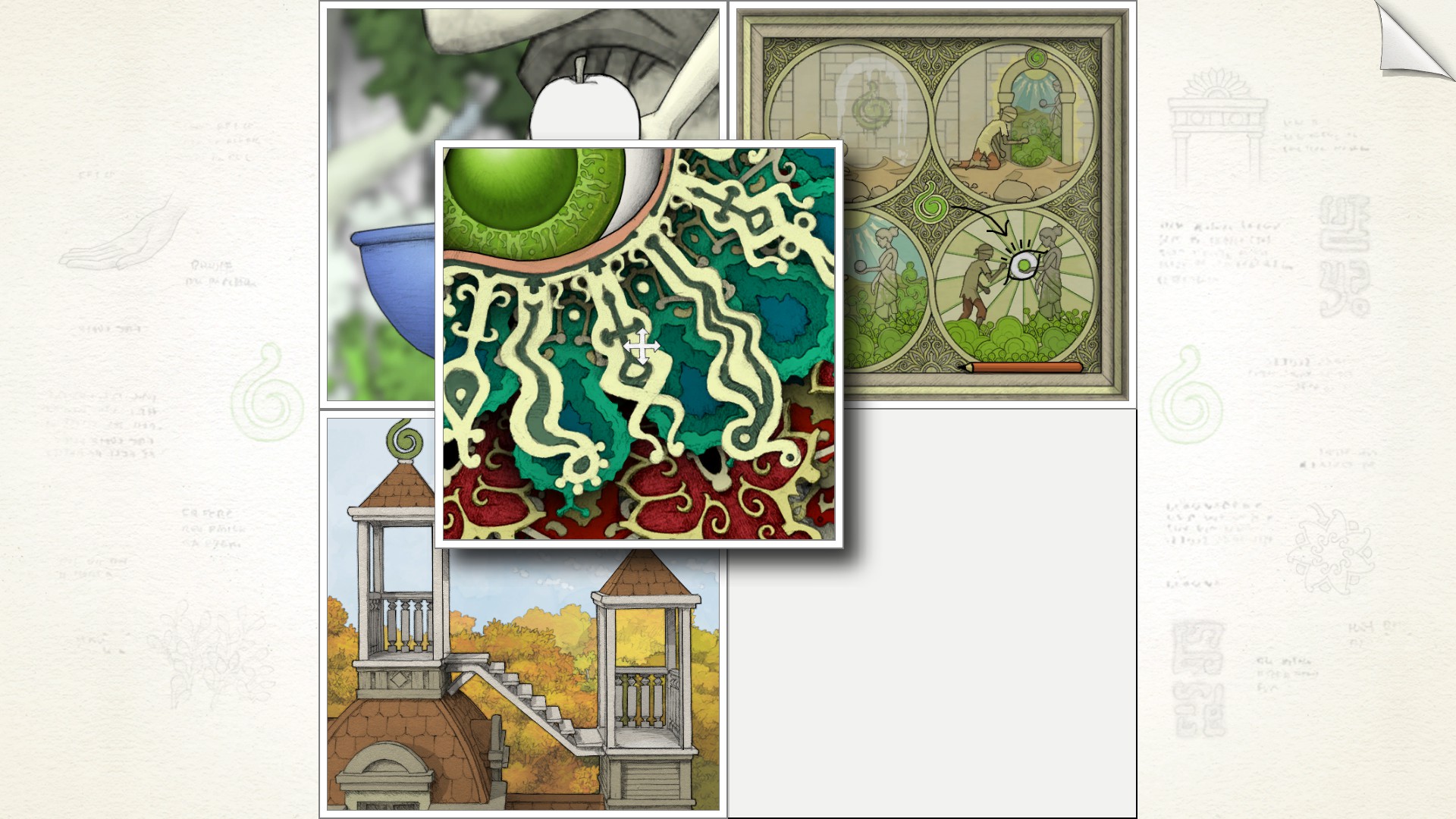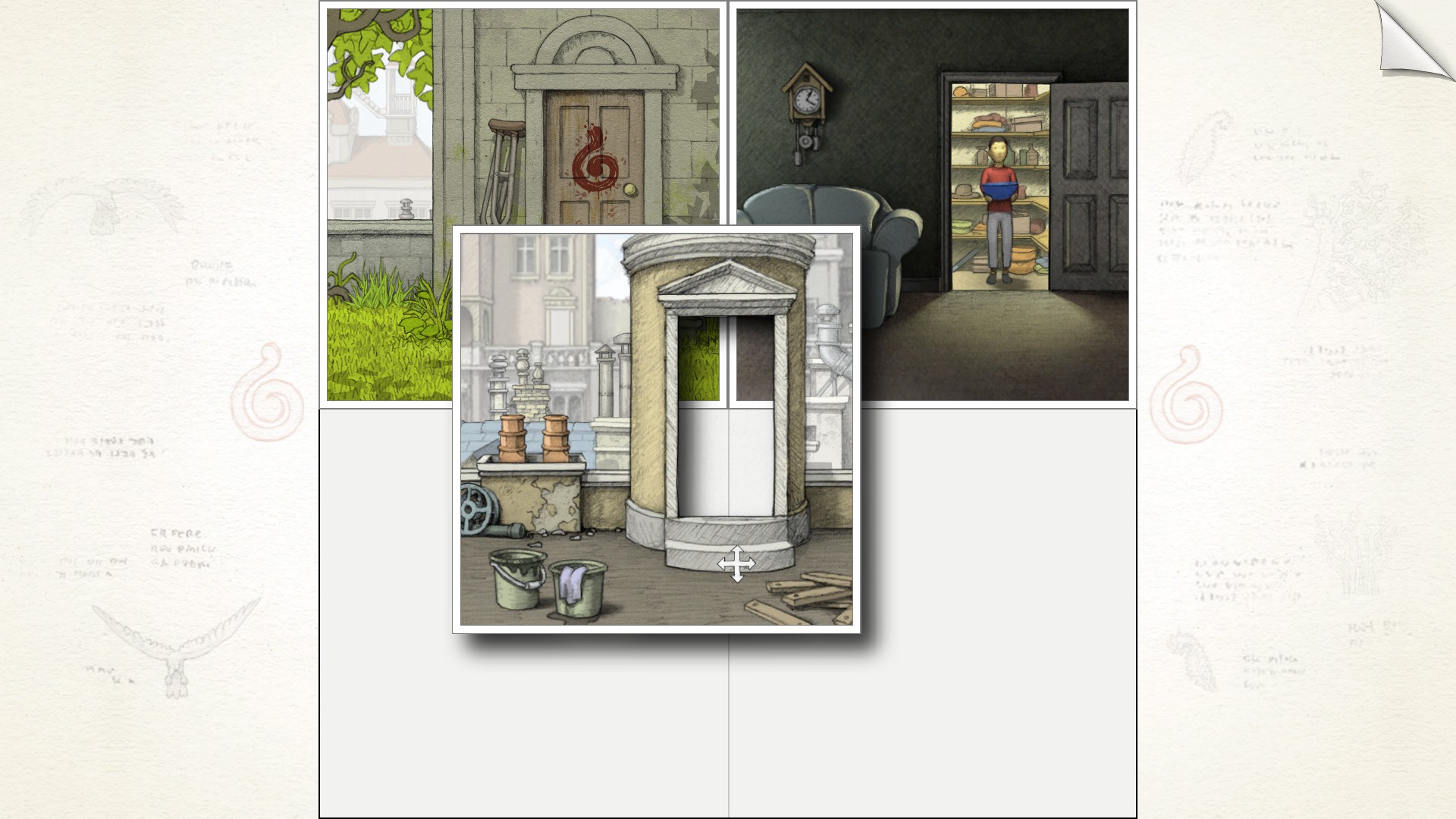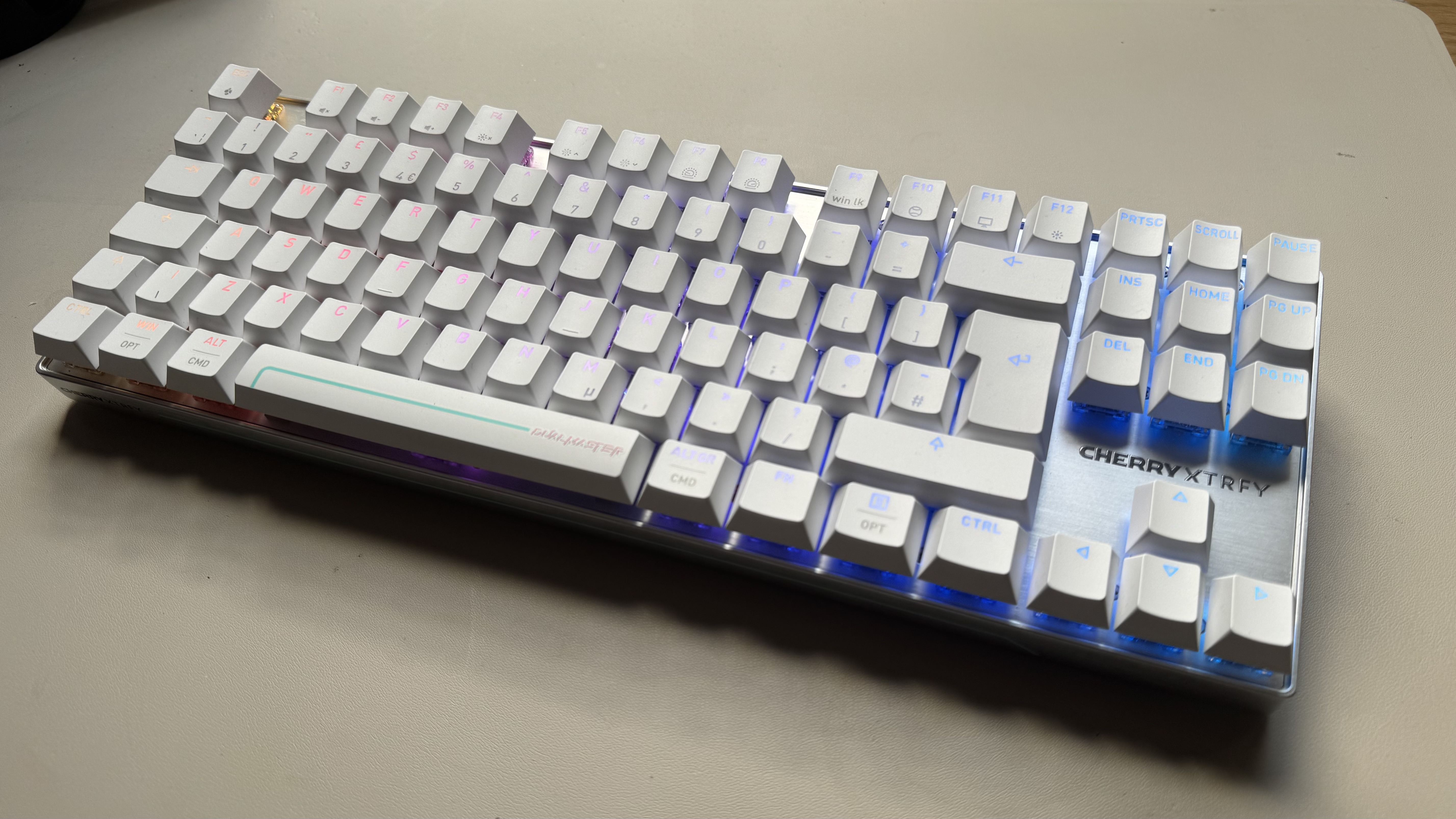Our Verdict
A fantastic feat of interlocking storytelling and design.
PC Gamer's got your back
What is it: A tile puzzler about finding patterns in a strange cosmos.
Expect to pay: $15 / £11
Developer: Buried Signal
Publisher: Annapurna Interactive
Reviewed on: Windows 10, 16GB RAM, Intel Core i7-5820k, GeForce GTX 970
Multiplayer: None
Link: Official site
I’ve been waiting for Gorogoa to come out longer than I’ve been working in the games industry. I knew it from a beautiful, elegant demo slice which I played over and over, moving tiles around, zooming in and out of the scenes they showed to find different ways of lining them up. Gorogoa is a hugely ambitious and utterly beautiful game about teasing out connections in a storybook world to guide a boy with a bowl towards fruit.
I think the first thing to do is flag up how successfully Jason Roberts executes this flow of interactions. It’s necessary to flag that up because the ease with which the images coalesce and then break apart masks what a phenomenal achievement it is.
Imagine a set of wall tiles whose intricate patterns perfectly line up to create undulating lines and strange optical effects. That precision and elegance is what Roberts is maintaining across an entire story. Chunks of interiors and exteriors match perfectly without seeming out of place in either of their respective scenes, an image in a thought bubble lines up with a balcony scene, a star in the sky is positioned perfectly so that it peeps through the gap in an overlaid tile and becomes the light from a lamp.
The fact that it works so smoothly hides the skill involved. Moment-to-moment the feeling isn’t of awe, it’s of a kind of peaceful academic curiosity. That sense is supported by the aesthetic—an illustration style which leans into a pale palette and a classical austerity I associate with neoclassicism, with monumental graveyard sculpture, with meticulous architectural drawings documenting antiquity with timeless clean lines.
The story itself is an interesting, ambiguous framework through which to explore the idea of repeating patterns. You aren’t quite seeing the underpinnings of the game’s universe so much as you’re tuning into refrains that recur across time and scale—coherence rather than transparency. I will say that my awareness of the narrative came and went depending on how much of my attention was dedicated to solving a puzzle.
As a result, I’m looking forward to my second playthrough, where I can move through the tile sequences more fluently having solved them once before. That’ll free me up to focus on the story and see what I missed the first time around.
In terms of the interface itself, you have anywhere from one to four tiles to play with at a given moment. You can zoom in, zoom out, pan up, down, left and right, and some tiles can be layered on top of one another. The relatively small number of objects and options means that specific puzzle game frustration where you can’t see the way to progress is reduced.
Keep up to date with the most important stories and the best deals, as picked by the PC Gamer team.
That’s not to say it’s entirely absent. I had moments where I simply couldn’t see a connection, or where I’d missed a vital way to change one tile and started to feel that rising tide of irritation. None of them lasted long, but being able to flow through those segments of the story instead of butting my head against them is adding to the appeal of that second playthrough.
I was actually wondering whether frustration could form an interesting part of Gorogoa in a way that differs from the normal point and click/puzzle game frustration. The game is structured around seeing these connections in the world and frustration linked in an interesting way to moments I remember from undergraduate maths classes where you’d catch a glimpse of a universal connection within the abstracted fabric and then lose the thread.
I know that Roberts felt a degree of challenge in finding hidden patterns in Gorogoa was important in creating the sense that they were indeed hidden patterns, but I get the sense that that wouldn’t have extended to outright frustration.
Gorogoa rewards your persistence with delightful elegant mechanisms. In terms of its space in gaming, I’d put it as a counterpoint to something like Amanita’s upcoming surreal puzzle toybox, Chuchel. In both you’re interacting to progress, letting the worlds unfurl in unexpected and wonderful directions, but where Chuchel is warmly comedic, Gorogoa is austere and elegant.
A fantastic feat of interlocking storytelling and design.



